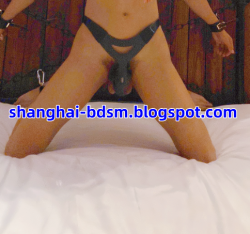Turbulence Training: How I Push Pilots Beyond Their Limits in Shanghai
In the high-stakes world of aviation, discipline, precision, and mental fortitude are non-negotiable. As a dominatrix trainer for pilots in Shanghai, I take an unorthodox yet highly effective approach to instilling these qualities in the men and women responsible for commanding aircraft through the skies. While my methods are unconventional, the results speak for themselves—pilots emerge from my sessions with heightened focus, resilience, and an unshakable command of their emotions.
The Philosophy Behind My Training
Aviation is as much a psychological endeavor as it is a technical one. Pilots must maintain their composure under pressure, execute commands with absolute precision, and navigate unpredictable situations with confidence. Traditional flight schools emphasize technical skill, but they often neglect the mental discipline required to master the cockpit. That’s where I come in.
As a dominatrix, my expertise lies in control—of the mind, the body, and the environment. By pushing pilots beyond their comfort zones in carefully structured sessions, I help them develop the mental toughness necessary to handle the rigors of high-stakes aviation. My approach blends elements of power dynamics, sensory deprivation, and controlled stress exposure to simulate the pressures they’ll face at 30,000 feet.
The Training Process
Each pilot I train undergoes a rigorous assessment before we begin. I tailor my methods to their individual weaknesses, ensuring that the experience challenges them in ways they never expected. A typical session might include:
-
Command and Obedience Drills: Pilots must execute precise verbal and physical responses under strict guidance, reinforcing their ability to follow instructions without hesitation.
-
Sensory Deprivation and Overload: By manipulating sensory inputs—such as blindfolding, intense noise, or tactile stimulation—I train pilots to maintain control in high-pressure environments where they might experience sensory confusion.
-
Endurance and Resilience Training: From prolonged stress scenarios to controlled humiliation exercises, pilots learn to push through discomfort and maintain focus under psychological duress.
-
Role Reversal Exercises: Pilots accustomed to dominance in their professional lives are placed in positions of controlled submission, teaching them adaptability and the value of relinquishing control when necessary.
Why It Works
The psychological principles behind my methods are well-documented in military and high-performance training. Exposure to controlled stress improves emotional regulation, while power dynamics training fosters decisive leadership and confidence. Pilots who complete my sessions report improved decision-making under pressure, heightened focus, and a newfound ability to compartmentalize emotions during critical moments.
Breaking Taboos in Aviation Training
The aviation industry is steeped in tradition, but the world is changing. My work in Shanghai represents a bold departure from conventional training methodologies, proving that alternative approaches can yield remarkable results. While some may raise an eyebrow at the notion of a dominatrix shaping the next generation of elite pilots, my clients—and their impeccable flight records—are proof that this method works.
As pilots navigate turbulence in the air, they must first master the turbulence within. And that is precisely what I train them to do.























































